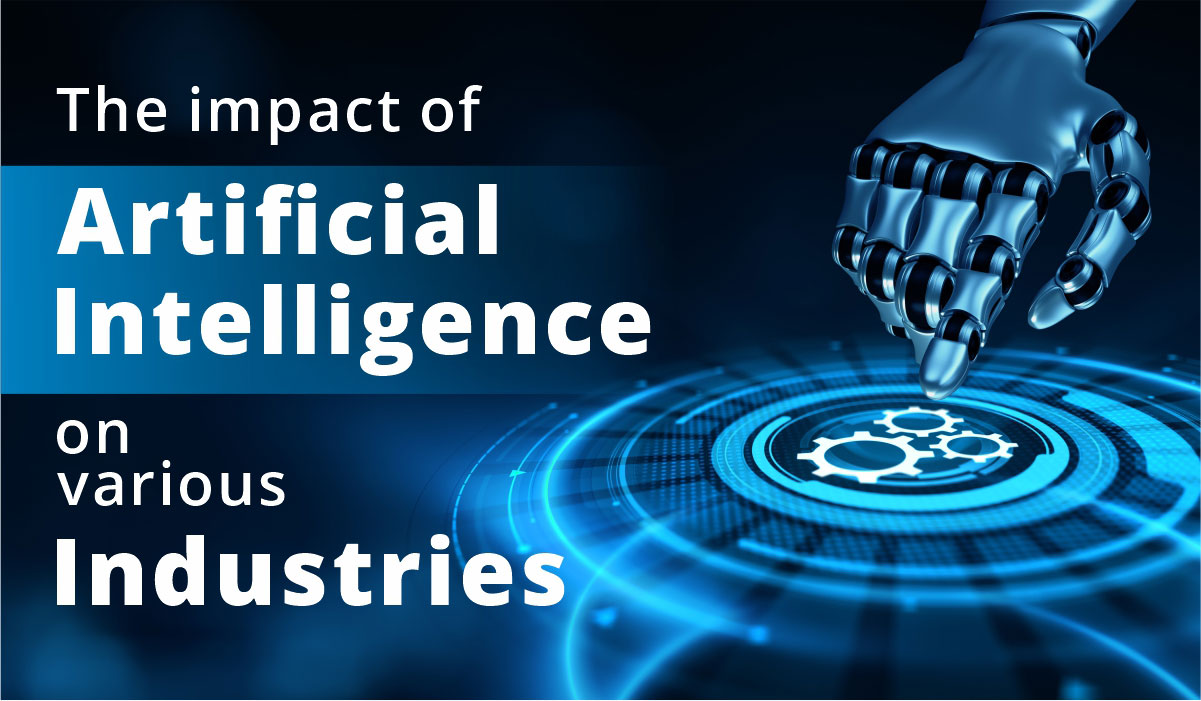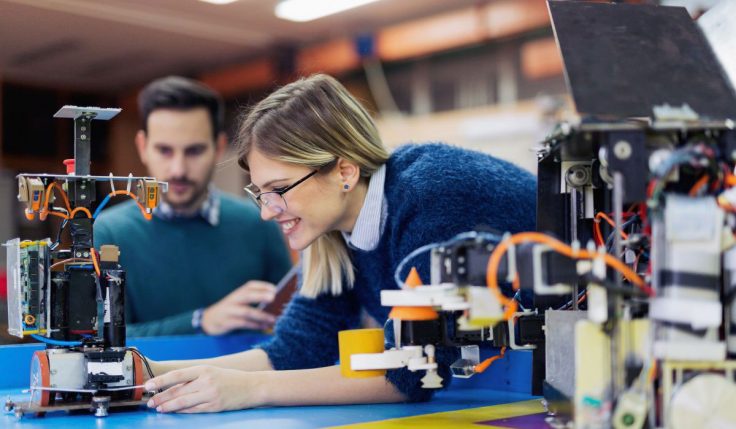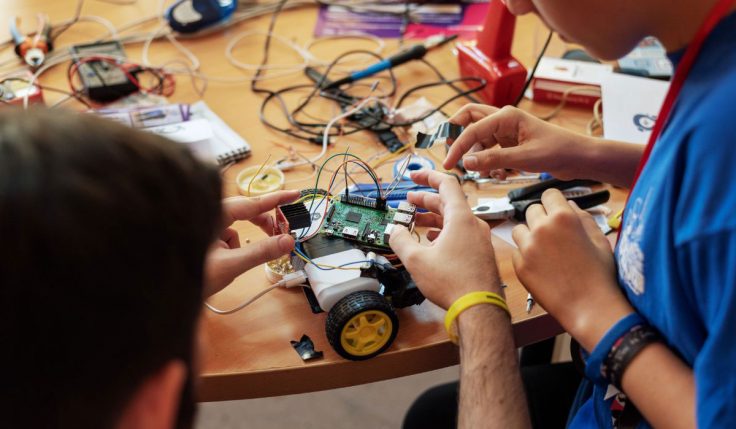Artificial intelligence (AI) has become a transformative force in today’s rapidly evolving world. Its influence extends across numerous industries, revolutionising the way we live, work, and interact. From healthcare and finance to education and entertainment, AI is reshaping traditional practices and opening up exciting new possibilities. In this blog, we will explore the impact of AI on various industries, focusing on how it affects students and their perspectives.
Education Sector: AI has brought significant advancements to the field of education. Intelligent tutoring systems and adaptive learning platforms use AI algorithms to personalise the learning experience, tailoring educational content to the needs and abilities of individual students. AI-powered chatbots provide instant assistance, answering student queries and enhancing the accessibility of educational resources. Additionally, AI-based assessment tools streamline grading processes, offering faster and more objective evaluations.
Healthcare Industry: In healthcare, AI has emerged as a powerful tool for diagnostics, drug discovery, and patient care. Machine learning algorithms can analyse vast amounts of medical data, aiding in the early detection of diseases and suggesting appropriate treatment plans. AI-powered robotic assistants assist surgeons during complex procedures, increasing precision and reducing the risk of errors. Virtual nurses and health monitoring systems equipped with AI algorithms offer personalised healthcare guidance and remote patient monitoring.
Financial Sector: AI has significantly transformed the financial industry, introducing automation, fraud detection, and predictive analytics. Intelligent algorithms can analyse large datasets, detect patterns, and make accurate predictions for investment strategies. AI-based chatbots provide customer support and automate routine financial tasks, enhancing efficiency and improving the customer experience. Moreover, AI-powered systems help detect fraudulent activities, minimising risks and ensuring the security of financial transactions.
Entertainment and Media: The entertainment and media industry has embraced AI to enhance user experiences and create personalised content. AI algorithms analyse user preferences, behaviour, and historical data to recommend movies, TV shows, music, and other forms of entertainment. Virtual reality (VR) and augmented reality (AR) technologies, coupled with AI, create immersive experiences in gaming and storytelling. AI-generated content, such as automated news articles or computer-generated art, is also emerging as a unique aspect of this industry.
Transportation and Logistics: AI has revolutionised the transportation and logistics sector, paving the way for autonomous vehicles, smart traffic management, and efficient supply chain systems. Self-driving cars and trucks equipped with AI algorithms offer the potential for safer and more efficient transportation. AI-based optimisation algorithms help streamline logistics operations, reducing costs and improving delivery timelines. Additionally, AI-enabled route planning and predictive maintenance enhance overall efficiency and customer satisfaction.
Retail and e-commerce: AI is transforming the retail industry by enabling personalised shopping experiences, optimising inventory management, and improving customer service. Recommendation systems powered by AI algorithms analyse customer preferences and browsing patterns to suggest relevant products. AI-powered chatbots assist customers with inquiries, provide product recommendations, and facilitate seamless transactions. Additionally, AI-based inventory management systems help retailers predict demand, optimise stock levels, and reduce waste.
Manufacturing and Industrial Automation: AI plays a crucial role in streamlining manufacturing processes and enhancing productivity. Industrial robots equipped with AI capabilities can perform repetitive tasks with precision and speed, reducing human error and increasing efficiency. AI-powered quality control systems identify defects and anomalies in real-time, ensuring high product standards. Predictive maintenance powered by AI algorithms minimizes equipment downtime and optimizes maintenance schedules, leading to cost savings.
Agriculture and Farming: AI is revolutionising the agricultural sector by improving crop yields, monitoring soil conditions, and optimising resource usage. AI-powered drones and satellite imaging analyse crop health, enabling farmers to detect diseases, pests, or nutrient deficiencies at an early stage. Machine learning algorithms predict optimal planting and harvesting times, leading to better yield predictions. Smart irrigation systems, driven by AI, optimise water usage, conserving resources and reducing costs.
Energy and Utilities: The energy sector benefits from AI by optimising energy generation, improving grid management, and enhancing resource efficiency. AI algorithms analyse data from smart meters and sensors to forecast energy demand, enabling utilities to optimise energy generation and distribution. AI-based predictive maintenance systems monitor energy infrastructure and detect anomalies, reducing downtime and improving maintenance efficiency. Additionally, AI helps identify energy-saving opportunities and supports the integration of renewable energy sources.
Human Resources and Recruitment: AI is transforming the HR and recruitment processes by automating repetitive tasks, enhancing candidate selection, and improving employee engagement. AI-powered applicant tracking systems analyse resumes, screen candidates, and identify the best fit for specific roles. Chatbots and virtual assistants assist employees with HR-related queries, policies, and benefits. AI-driven sentiment analysis tools help gauge employee engagement and satisfaction, enabling organisations to take proactive measures for retention and development.
Artificial Intelligence continues to redefine industries, presenting new opportunities and challenges across diverse sectors. As students, understanding the impact of AI in various industries allows for a broader perspective and the ability to adapt to future career demands. Embracing AI technologies responsibly and developing the necessary skills will be crucial for success in an AI-driven world. By leveraging the power of AI, industries can achieve greater efficiency, innovation, and sustainability.
Also, read: AI Transformation in Education-Introduction
Chitkara University is playing a pivotal role in preparing students for the AI revolution. Through its well-designed curriculum, industry partnerships, practical learning approach, and emphasis on research, the university equips students with the knowledge, skills, and confidence to thrive in an AI-driven world. By nurturing the next generation of AI professionals, Chitkara University is contributing to the growth and advancement of AI in India and beyond.






